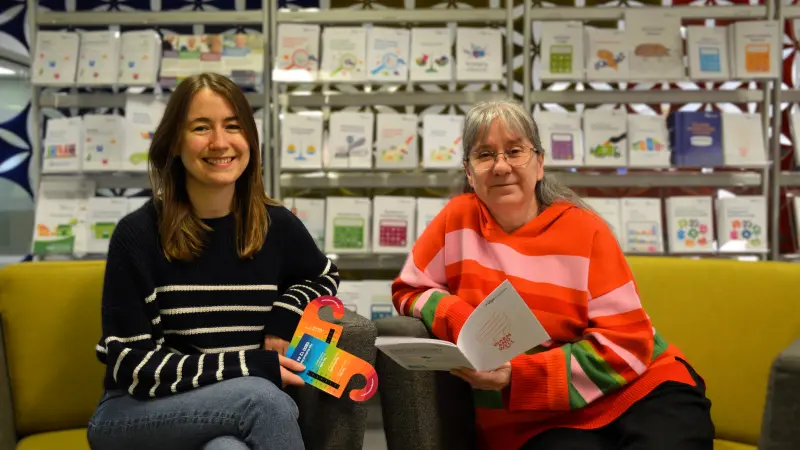Health and Wellbeing in Older LGBT+ Community
To mark Pride month, Keith Paterson of LGBT Health and Wellbeing, has written a blog looking at the particular issues affecting older members of the LGBT+ community, what support is available and how to help older LGBT+ people live well in later life.
As we mark Pride month with celebrations and marches across the globe (or at least in those countries where people are allowed to do so), it is an appropriate time to consider the health and wellbeing issues facing the older LGBT+ community.
LGBT Health and Wellbeing’s Age Action Group was recently asked to contribute to the Scottish Government’s consultation of their Health and Social Care Strategy for Older People. At that meeting, members of the group made the point that while older LGBT+ people face the same issues as the general aging population, we also, as a marginalised community, face additional challenges.
Research has shown that we are much more likely to live on our own, less likely to have a partner, much less likely to have children and significantly more likely not to have anyone to call on in a time of need. That need may be someone to accompany us to a hospital appointment or to help us out when we are ill. All of this leads to a much greater reliance on access to formal services and support. As we know there are huge budgetary and staffing issues, in that sector which means that those services are less likely to be available, and if available at all, less effective at meeting the needs of people accessing them.
Although older LGBT+ people may need those mainstream services, they are also less likely to try and access them. Fear of discrimination and previous negative reactions from some staff and other leads to a situation where people feel that they can’t ask for help, which in turn has a negative effect on both mental and physical health.
We also know from studies that our mental and emotional health is poorer with higher rates of depression, anxiety, drug and alcohol use, self-harm and suicidal ideation. Many LGBT+ people, especially older ones, struggle to be out to family, friends and colleagues.
Our older community members grew up at a time when being gay was illegal and they could be sacked from their job without recourse. Discrimination and homophobia were, a daily occurrence and many of us faced physical threats and violent attacks. This has had a long-lasting effect on the emotional health of some older community members
I am the co-ordinator of LGBT Health and Wellbeing’s Telefriending service. A dedicated and trained team make regular phone calls to isolated older LGBT+ people across Scotland. The demand for the service is growing as people turn to charities for support that they cannot find elsewhere. We are hearing increasingly concerning stories from our community members about the attitudes they encounter from some health and care staff.
One 80-year-old gay man receives a care package to enable him to live at home. One of his carers has expressed their distaste for “his lifestyle” and every time this particular carer visits, the photograph of the man and his late partner on their wedding day, is laid face down on the shelf. The man is frightened to complain in case he loses his hard-won care package. Another man has in his words “gone back into the closet” because of picking up on homophobic comments from fellow residents of his retirement home. These are not isolated incidents and they have a serious affect on people’s mental health.
In many ways in societal attitudes and in civic Scotland, we have come a long way but the recent worrying increase in physical and verbal attacks on Trans people, has left many in our community feeling fearful that the direction of travel is backwards. Our services continue to work to influence change and bring people together in a positive and celebratory way.
The Telefriending Service can be reached by phoning 0131 564 3972 or by emailing tele@lgbthealth.org.uk


